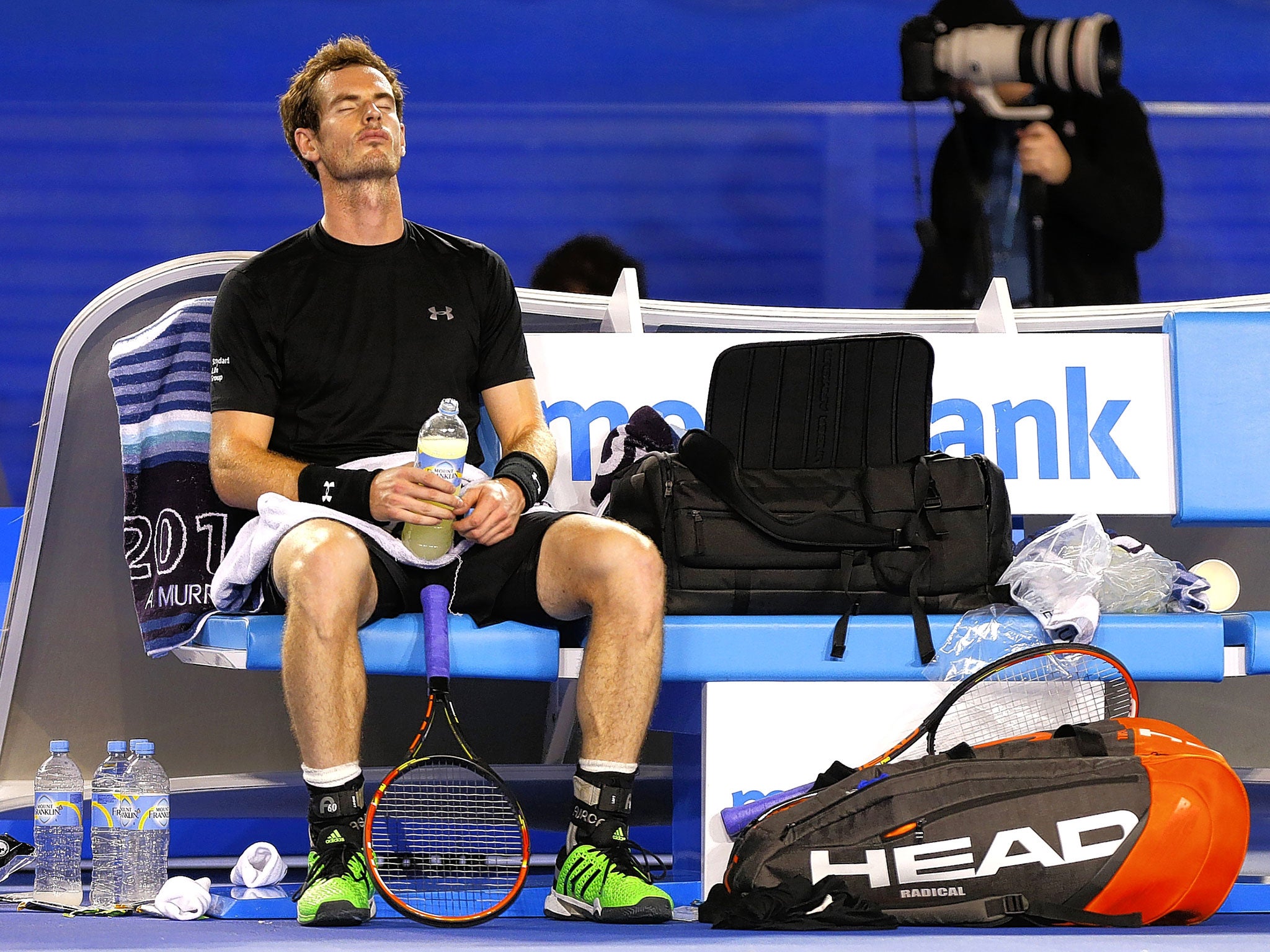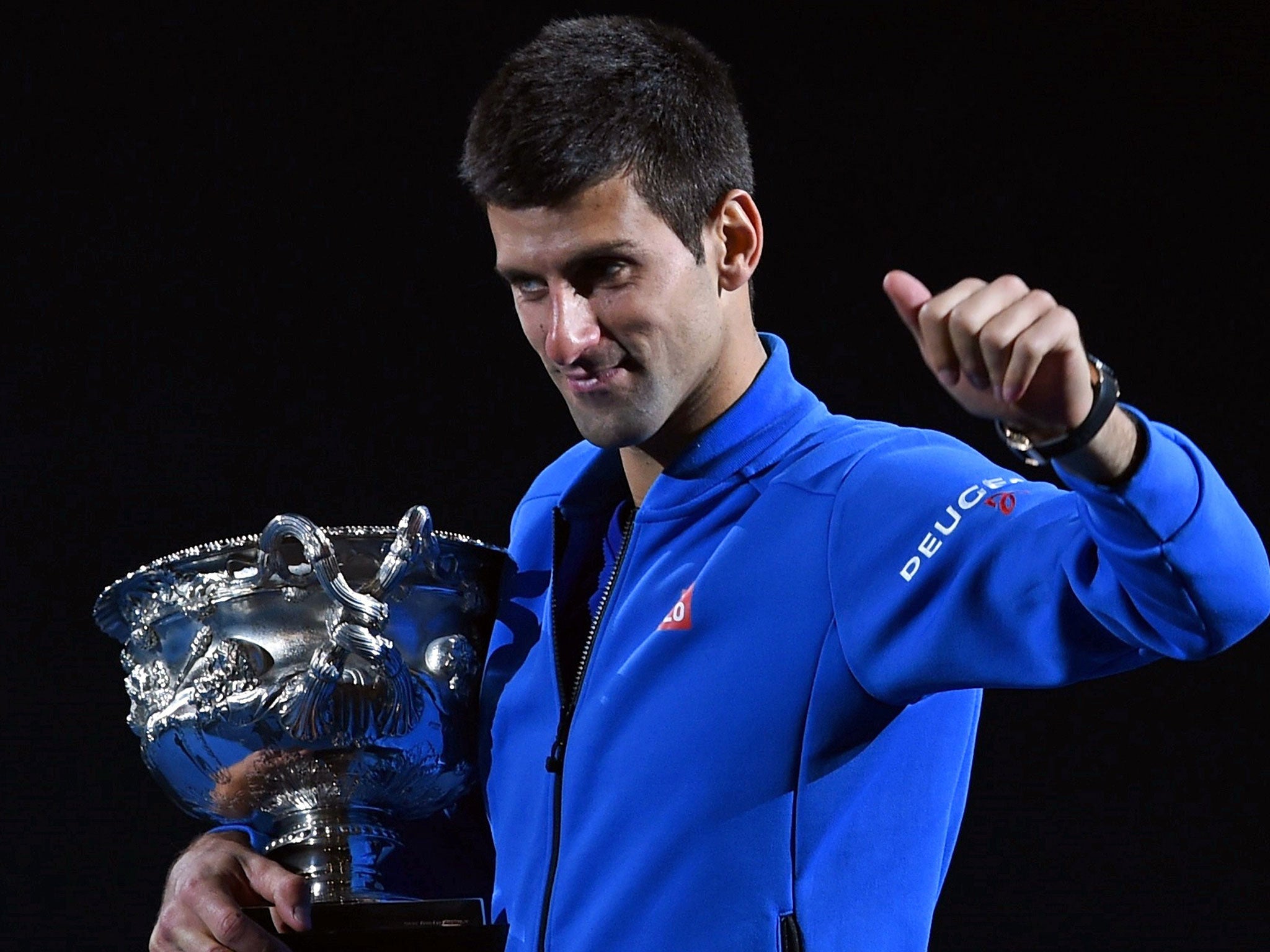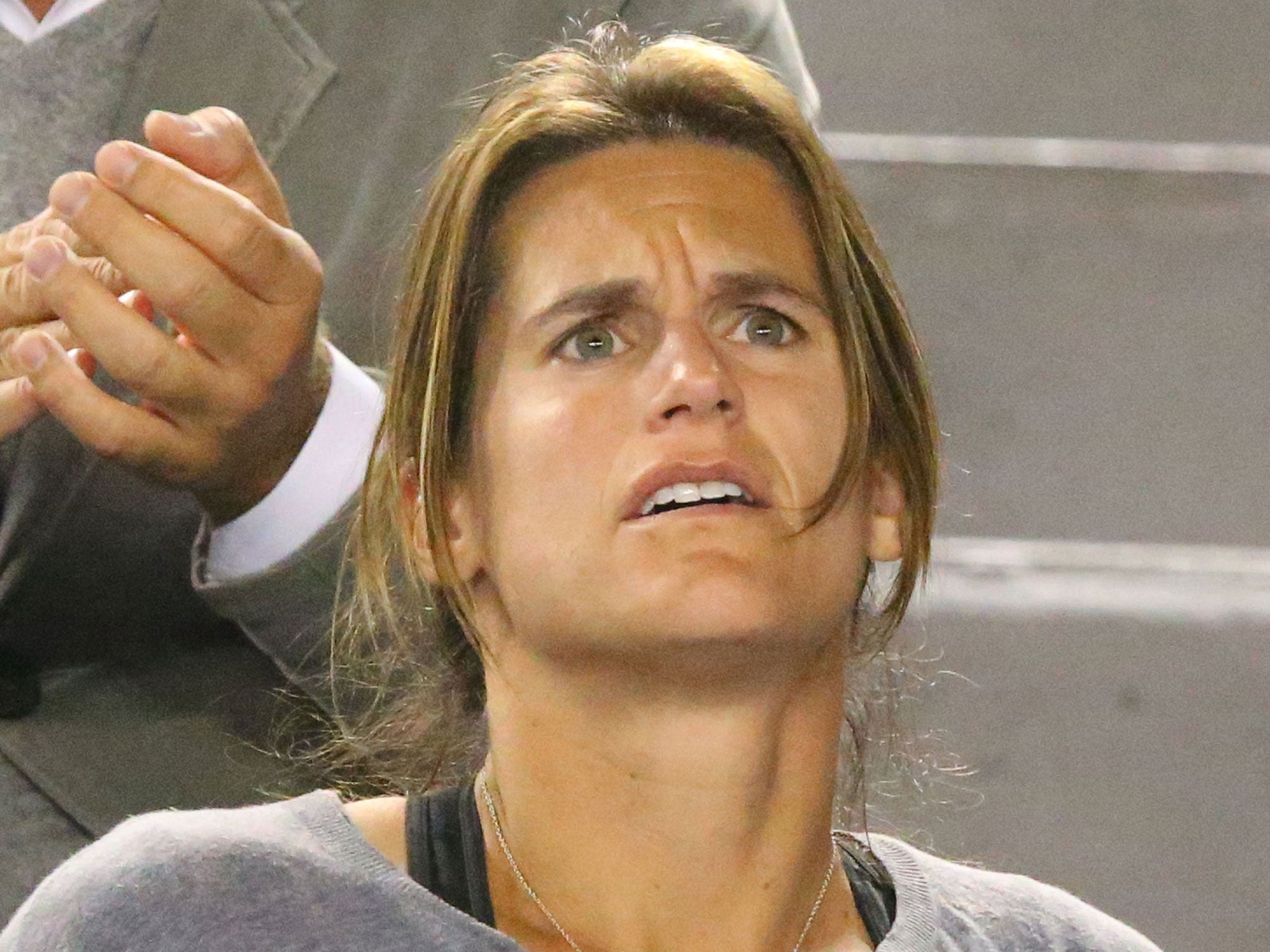Andy Murray is good - but not great, as his failure to step up in finals shows
Comment: Six defeats in grand slam finals are hard to turn around at this point

Your support helps us to tell the story
From reproductive rights to climate change to Big Tech, The Independent is on the ground when the story is developing. Whether it's investigating the financials of Elon Musk's pro-Trump PAC or producing our latest documentary, 'The A Word', which shines a light on the American women fighting for reproductive rights, we know how important it is to parse out the facts from the messaging.
At such a critical moment in US history, we need reporters on the ground. Your donation allows us to keep sending journalists to speak to both sides of the story.
The Independent is trusted by Americans across the entire political spectrum. And unlike many other quality news outlets, we choose not to lock Americans out of our reporting and analysis with paywalls. We believe quality journalism should be available to everyone, paid for by those who can afford it.
Your support makes all the difference.So what next for Andy Murray? He is the same age as Novak Djokovic, 27. One has two grand slam titles, the other eight. This was Murray’s fourth final in Melbourne and his fourth defeat. Djokovic has won all five of the Australian Open finals contested. In other words the outcome conformed to an established pattern.
Professional athletes are a species wired to look for upward trends in the career trajectory. Murray endured a torrid 2014 after back surgery. This was his first grand slam final appearance since his victory at Wimbledon against Djokovic in 2013.
It comes after intense training camps in Miami and Dubai, so yes, he sees it as a step in the right direction, towards a period of further grand slam bounty.
There were no tears this time. The smile on the face of Murray did not reflect crushing disappointment. For the best part of three hours of a compelling encounter, there was not a fag paper between him and the world No 1.
At 2-0 and a break up at the start of the third set having just taken the second to level the match, Murray was in the ascendency. Matches at this level between players of broadly similar technical gifts will always play out on a tight rope with momentum shifts a matter of fractions.
Then, seemingly from nowhere Murray began to unravel, claiming just one of the next 12 games and suffering the ignominy of the bagel in the fourth set. This was the kind of mental disintegration that characterised his tennis in the pre Ivan Lendl period. His association with the Czech appeared to stiffen his resolve, giving him the belief in tight exchanges that he would overcome.
It was precisely that iron stare from Lendl that Murray needed yesterday. Djokovic looked broken at the start of the third. Granted no player beyond the football arena has managed to recover so dramatically from the point of apparent physical collapse. Yet to fall away so radically suggests in this company that Murray could just have reached his level.
It should be pointed out that if Murray were not to win another title he has had a magnificent career, just not one enjoyed by the greats. He has mixed among arguably the greatest simultaneous three-ball in the history of tennis.

Djokovic is a hall-of-famer, keeping admirable company with Rafa Nadal and Roger Federer. In any other era Murray might have profited more. His relationship with Amélie Mauresmo has shown encouraging signs of improvement. That aching passivity that used to claim him appears a thing of the past.
He was down early in the opening set of his fourth round match against Wimbledon nemesis Grigor Dimitrov, but wrestled the initiative back impressively to win in four. In the semi-final he surrendered the opening set to Tomas Berdych, a player against whom he has a losing record, before coming back aggressively to win. These were matches Murray might have lost in another life.

But he could not force the knife home against Djokovic when the demand was at its height. Again, not many can. Murray’s work ethic cannot be faulted. It is fair to assume that the fault is not fitness. Therefore it comes down to mentality. In critical episodes during the third set he was engaged in an internal dialogue during the changeovers that would have had Sigmund Freud rubbing his hands.
Thus battling on two fronts, against himself as well as Djokovic, the challenge became too great and he quickly fell apart. Djokovic has a past littered with flaky moments that are evoked during crisis points. But they were cauterised a long time ago. A change to a gluten-free diet helped and he learned how to win earlier in the process than Murray.
Six defeats in grand slam finals are hard to turn around at this point. Though Federer is nearing the end and Nadal is increasingly fragile, Djokovic shows no signs of slowing. And there is a talented group of irreverent thrusters eager to establish their own credentials, led by Dimitrov, Milos Raonic and Australian teenager Nick Kyrgios.
Murray will doubtless repair to the bosom of his evolving team to process the outcome and focus on the “positives”. Defeat will be seen as a step towards nirvana not the exhaustion of potential. Fair enough and we wish him well, but he must accept that is not how it looks to neutral observers.
The Liverpool team of Rafa Benitez that won the FA Cup and Champions League in 2005 posted third place finishes in the Premier League in the following two seasons and in 2009 closed to within a point of champions Manchester United.

The line of progression was obvious, leading, at least for the Liverpool fan, to the ultimate end. A first league title in more than two decades would be theirs in 2010. The logic was unanswerable. Not for one minute did the great Liverpool diaspora believe that potential had been exhausted. It had. Liverpool fell to seventh the following year. A cycle had come to an end for that group.
In Murray’s case the evidence points to a similar end. He is, it seems, falling into a bracket that includes the likes of Pat Rafter, Marat Safin, Goran Ivanisivic, Illie Nastase, Stan Smith − substantial players good enough to claim grand slams on their day but ultimately a gear short of the titans of the game.
There is a rung above them on to which Murray might climb but he still has a distance to travel to mix with the alpha plus boys. Stefan Edberg has six, Mats Wilander seven, John Newcombe seven, John McEnroe and Lendl eight. All five are legendary figures yet must doff their caps to the likes of Bjorn Borg, Pete Sampras, Nadal and Federer.
Djokovic has demonstrated the quality required to join history’s high table. The French Open would give him the full set. Whatever Murray does next, as good as he is, he is not in that league.
Join our commenting forum
Join thought-provoking conversations, follow other Independent readers and see their replies
Comments